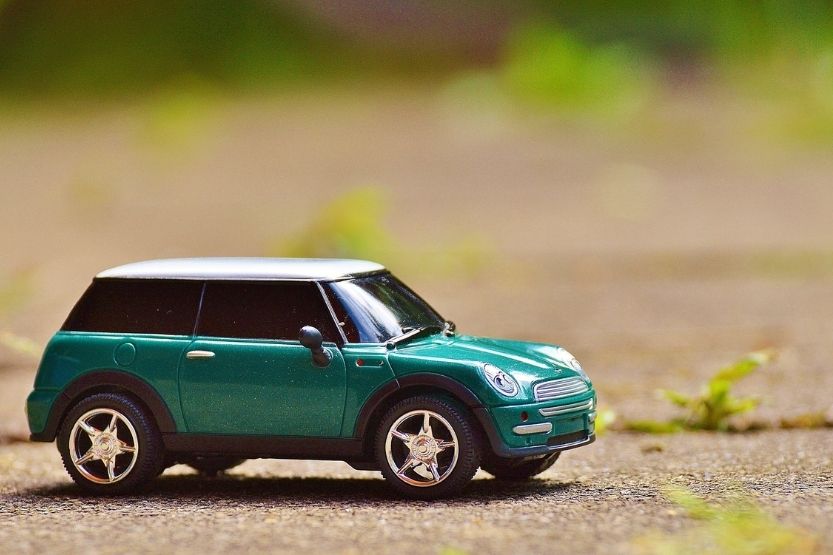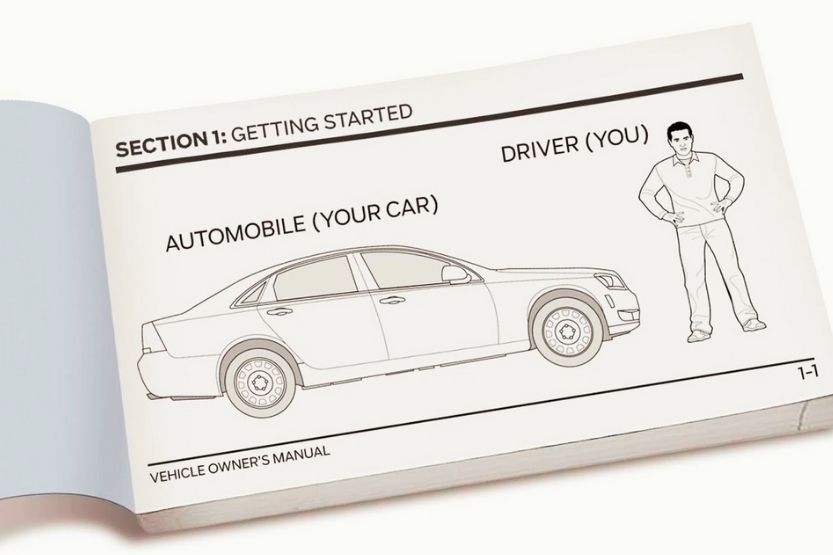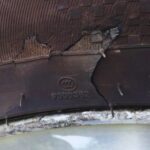Do you know how heavy your car is? If you’re a car owner, you must know how much your car weighs. Here in this article, you’ll know the answer to the question: How much does a car weigh in tons?
The average weight of a car is 1.5 tons (3,000 pounds). This is the average sedan weight from each of the top car brands from 2017 using data by Edmunds.
First of all, the weight depends on the type of car. Do you have a sedan, SUV, sports, van, or truck? The weight depends on the make, model, material used, and year. Knowing the weight of your vehicle is part of being a responsible car owner. This article will give you a more in-depth look at car weight.
Read on to learn more about how much a car weighs in tons and how to weigh your car.
How Much Does A Car Weigh in Tons?

Knowing the Car’s Weight Can Prevent Accidents
A car weighs, on average, 1.5 tons. Knowing your car’s weight can help prevent accidents from happening. It can even save your life and the lives of other people. If you need to cross a makeshift bridge, for example, you need to know if the bridge can handle the weight of your car.
Might Come Handy in the Future
You will have to guess if you don’t have that kind of information. Knowing how much your car weighs can also be handy if you need to report such information. If you have an old car and want to sell it as junk, you need to know how heavy it is to determine the right price.
Smart Car Dimensions and Specs
How to Weigh a Car
There are different ways to measure a car’s weight. It pays for car owners to know how vehicle weight is measured. So if you get into a situation where you’ll be asked the type of weight you’re looking for, you’ll be able to provide an answer. The different vehicle weight types include the following:
- Curb Weight
- Dry Weight
- Payload
- Gross Vehicle Weight (GVW)
- Gross Vehicle Weight Rating (GVWR)
- Gross Combined Weight (GCW)
- Gross Combined Weight Rating (GCWR)
- Maximum Load Trailer Weight
- Gross Axle Weight
- Gross Axle Weight Rating
What Is Curb Weight?
This is the term that is commonly used to describe vehicle weight. This is the weight type that most car manufacturers use. It includes the actual car weight, the standard equipment, and the fluids needed to operate the car.
Curb weight, though, doesn’t include the weight of the driver, passengers, and other things you have in the car. The curb weight is the car’s weight when it’s still in the dealer or showroom.
What Is Dry Weight?
You get its dry weight if you remove all the fluids inside a car. So if you get the curb weight of the car, then you subtract the weight of all of its fluids (gas, oil, brake fluid, transmission fluid, coolant), then you get the car’s dry weight.
Of course, you can’t dry a car without these fluids. And it’s almost impossible to find a car without fluids except maybe in a museum.
You can see some manufacturers using dry weight, particularly if they want to exaggerate a car’s power-to-weight ratio to compare with the curb weights of other cars. So if you’re going to find the weight of your car in tons, consider if you wish to find the dry weight.
What Is Payload?
Payload is the weight of everything and everyone inside the car, including:
- Driver,
- Passengers,
- Different types of cargo: Luggage, groceries, etc.
What Is Gross Vehicle Weight (GVW)?
If you take a car’s curb weight and add the driver, passengers, and cargo weight, you will get the GVW or Gross Vehicle Weight. The GVW varies depending on the situation. There are times when you’re just driving alone, but there are also times when the whole family is with you.
Awareness of your car’s GVW is critical if you’re carrying a heavy load. You can find the maximum GVW of your car in the manual of your car. You can also find it in the driver’s door jamb of a car next to the recommended tire pressure.
What Is Gross Vehicle Weight Rating (GVWR)?
The Gross Vehicle Weight Rating (GVWR) represents the maximum amount that your car and everything in it can safely weigh. Every vehicle owner needs to know the GVWR. You don’t want to exceed the GVWR of your vehicle by overloading it.
Because if you do, it can lead to accidents on the road that can damage your car and hurt or even take the lives of persons inside the car. Going over the GVWR can also cause the following:
- Failing brakes and transmission,
- Overheating engine,
- Broken suspension, and
- Blow out tires.
What Is the Gross Combined Weight (GCW)?
If your car pulls a trailer and then drives it onto a scale, the reading you’ll get is the Gross Combined Weight or GCW. Apart from the car’s weight and the trailer, it includes all persons and objects inside.
On the other hand, the Gross Combined Weight or GCWR is the maximum weight that your car and trailer can carry. The two are similar to the GVW and GVWR. You mustn’t exceed the GCWR. If you do, you can experience the same problems you might encounter when you exceed the GVWR.
What Is the Maximum Load Trailer Weight?
This is just like GCW, but it includes the weight of a fully-loaded trailer.
What Is the Gross Axle Weight?
This is the current amount of weight supported by each car’s axle.
What Is the Gross Axle Weight Rating?
This is the maximum weight that each car’s axle can carry.
Again, how much does a car weigh in tons? An average car weighs around 1.5 tons (3,000 pounds).
How Much Does a Semi Truck Weigh?
How Can You Measure Your Car’s Weight?

So you now have an idea of the general weight of your car. The next thing you’ll learn is how to measure the actual weight of your vehicle.
As mentioned earlier, how much your car weighs depends on the car type, materials used in making the car, and even the car’s age. Below are some of the possible ways for you to determine the weight of your car:
1. Check the Car’s Door
The weight of your car might be listed on a sticker that you can find on the driver’s side door. So that’s one of the first places you can check.
2. Check the Car’s Manual
Hopefully, you still have your car manual. It has all the essential information about your car. You may find your car’s weight listed in the manual.
3. Call the Manufacturer
You can also call your car’s manufacturer and ask about its weight. Before asking this question, you need to know your car’s year, make, and model.
4. Use a Car Scale
You can search for a vehicle scale in your area to get the weight of your car.
How Much Money Can You Make From An Old Car?
Do you want to make extra money? Do you have an old car lying in your yard? You can sell it as junk for cash. The bigger and heavier the vehicle, the more money you can get from it. If you don’t want to be short-changed, you need to know the actual weight of the car.
You determine the weight of your car by trying any of the methods mentioned above. You need to know that the value of your vehicle will be determined by how much metal it contains. So if you have a heavy car with plenty of metal parts, you can expect a good price on it.
Is There A Connection Between Car Weight And Fuel Use?

A Heavy Car Uses More Fuel
There is a connection between car weight and fuel use. The heavier the car, the more fuel it needs to run. So if you want to save on gas money, buying a smaller, lighter vehicle is the way to go.
If you don’t want to replace your car, then maybe you’re wondering if there is something you can do to make it lighter.
Don’t Remove the Safety and Emissions Control Equipment
Please don’t remove the safety and emissions control equipment of your car. That’s against the law. Taking out your car’s air conditioning and infotainment system is also not a good idea. You paid a lot of money for those features.
Carbon Fiber Is Lighter Than Steel
You’ve probably heard of materials such as carbon fiber that are significantly lighter than steel. Indeed, using such materials can reduce the weight of your car.
But you need to know that carbon steel is an expensive material. Cars made with carbon fiber are beyond the reach of most consumers. This is why you don’t see carbon fiber cars being mass-produced. The market for it is very small.
Manufacturers Started Making All-aluminum Vehicles
Some car manufacturers have started making all-aluminum vehicles to reduce weight. Some manufacturers have used various materials for different parts of their vehicles. This development shows promise, but such changes require advanced technologies.
Avoid Using the Car as a Storage
So there is nothing much you can do to reduce the weight of your car. What you can do is avoid using your car as storage. If there is stuff in your car that you don’t use regularly, then the best thing you can do is to remove them. This will make your vehicle lighter. By doing so, you can also improve your car’s fuel efficiency. According to the EPA, you can improve your car’s fuel efficiency by one percent for every 100 pounds of stuff you remove.
Is There A Connection Between Weight And Safety?
Modern cars have features that ensure the safety of drivers and passengers in case of a crash. When a vehicle hits another car, the front and rear parts collapse to absorb much of the impact.
Of course, seat belts and airbags are standard features that help keep drivers and passengers safe. These features also keep people confined in very rigid structures to cushion them from the force of the impact.
If you have a large car and hit a smaller one, naturally, the smaller car will incur more damage. The occupants of the smaller car are also more likely to suffer from more injuries.
Large cars also tend to have more crumple space. This space separates the driver from the front of the vehicle. More crumple space means greater capacity to absorb the impact of a frontal crash.
You shouldn’t feel complacent when driving a heavy vehicle like a truck or SUV. This is because there is always a chance that you’ll hit or be hit by a larger vehicle.
So no matter what type of vehicle you’re driving, you always need to be careful. And you should also know the answer to the question: How much does a car weigh in tons?
Conclusion – Car Weight In Tons
The average weight of a car is 1.5 tons. The weight of vehicles varies. Your car may be lighter or heavier than this, depending on many factors.
Knowing your car’s weight can help prevent serious accidents from happening. It can even save your life and the lives of other people. If you need to cross a makeshift bridge, for example, you need to know if the bridge can handle the weight of your car.
You will be forced to guess if you don’t have that kind of information. Knowing how much your car weighs can also be handy if you need to report such information. If you have an old car and want to sell it, you need to know how heavy it is to determine the right price.

![How Much Does A Smart Car Weigh? [Smart Car Weight] how much does a smart car weigh](https://roadsumo.com/wp-content/uploads/2021/07/how-much-does-a-smart-car-weigh-150x150.jpg)

![How Much Does a Semi Truck Weigh? [With and Without Trailer] how much does a semi truck weigh](https://roadsumo.com/wp-content/uploads/2021/06/how-much-does-a-semi-truck-weigh-150x150.jpg)
![How Much Does a Ford F150 Weigh? [F150 Weight] f150 weight](https://roadsumo.com/wp-content/uploads/2021/07/f150-weight-150x150.jpg)


![Read more about the article What Does YMMV Mean? [YMMV Acronym Definition]](https://roadsumo.com/wp-content/uploads/2021/06/ymmv-meaning-300x200.jpg)

